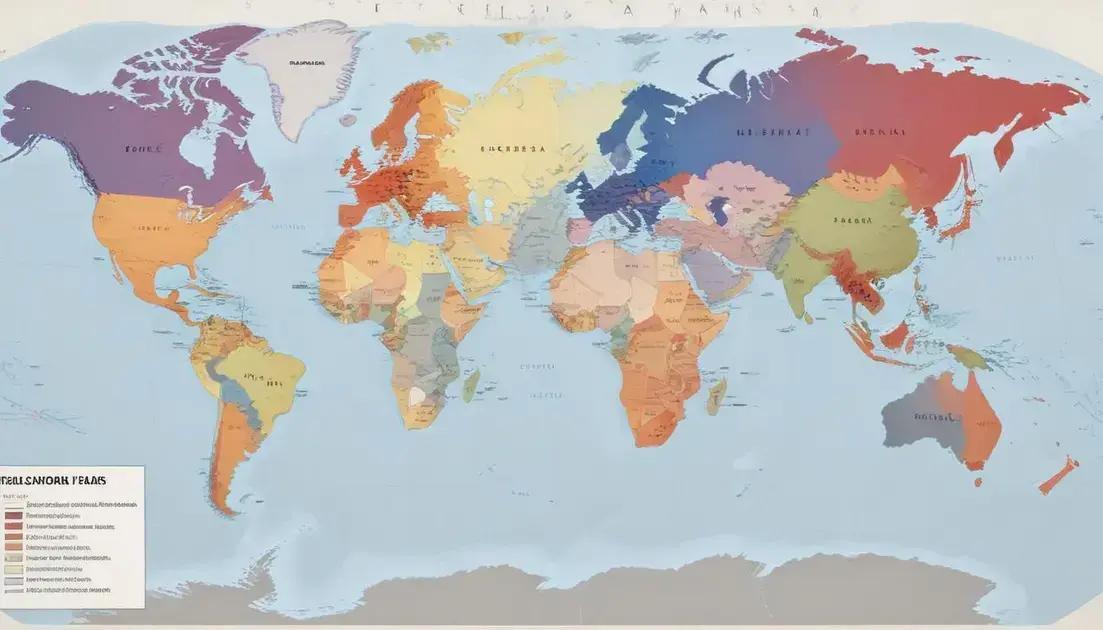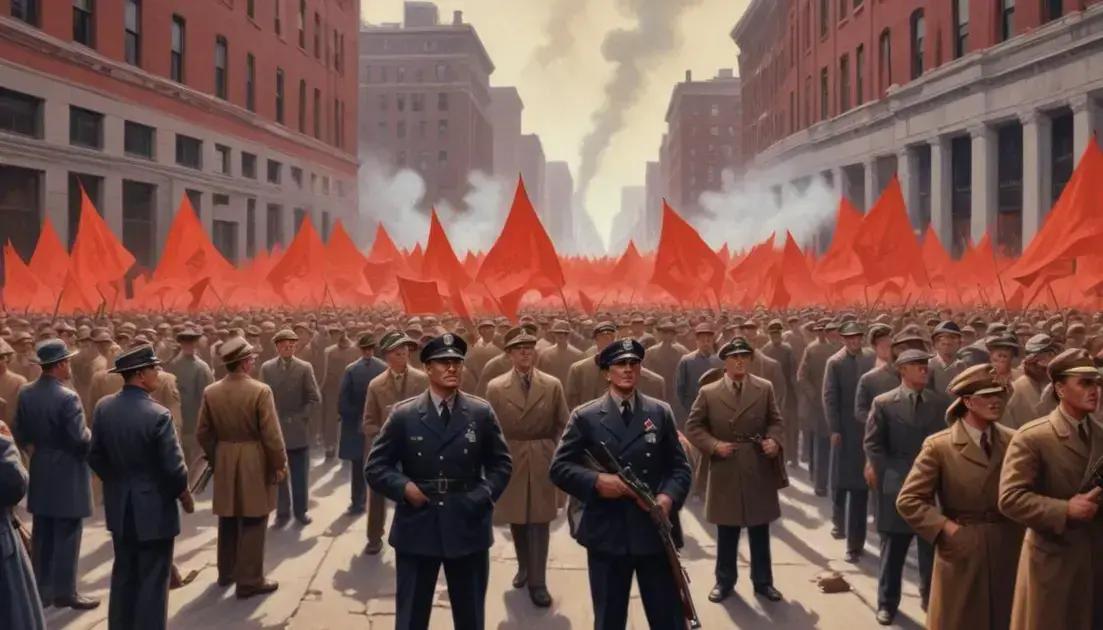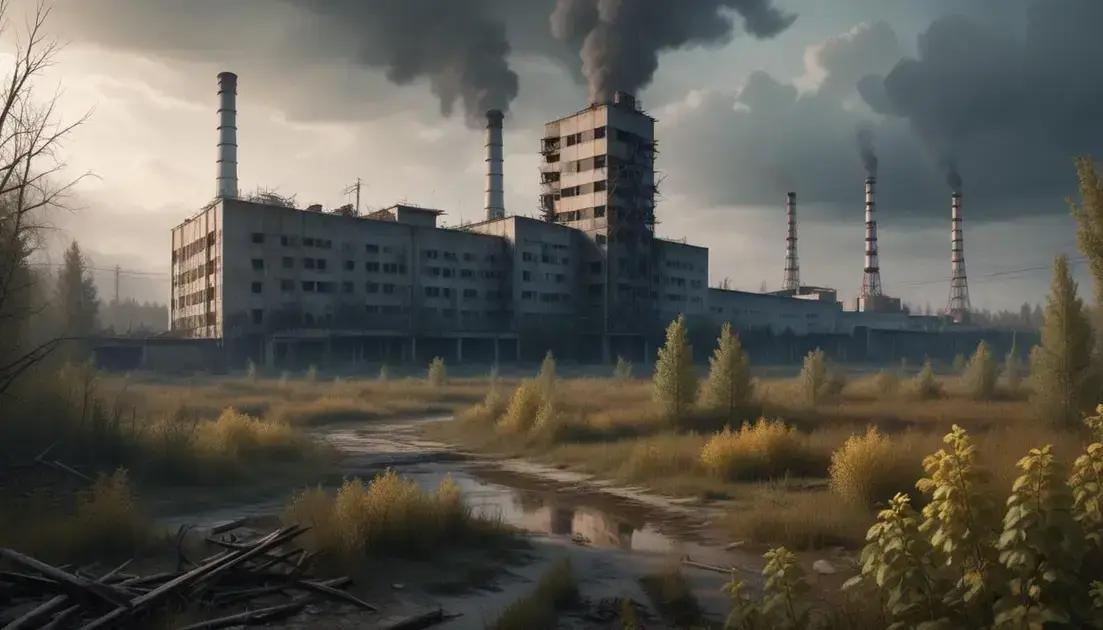
Neoliberalism and the dream of the “End of History”
The rise of Neoliberalism after the Cold War aimed for economic growth through free markets, yet it also contributed to continued global conflicts. As countries adapted to these policies, issues like equality and social justice emerged, challenging the idea of lasting peace. Reflections on the future suggest a need for cooperation to tackle pressing problems such as climate change, while technology’s advancement raises questions about ethics and societal impact. Understanding these dynamics is essential for navigating the complexities of today’s world.
Since the end of the Cold War, many look back at the promises of Neoliberalism as signs of a new dawn. But what happens when history tells a different story?
The Rise of Neoliberalism
In the late 20th century, Neoliberalism became a dominant economic theory. It promised to boost economies through free markets and reduced government intervention. Many countries, especially in the West, embraced these ideas following the Cold War.
Key Principles of Neoliberalism
The main idea behind Neoliberalism is that markets work best when left alone. By cutting taxes and regulations, the theory suggests that businesses can thrive. This should lead to economic growth. The belief was that wealth would trickle down to everyone as the economy prospered.
Global Spread
Countries worldwide adopted Neoliberal policies. In the 1980s, leaders like Margaret Thatcher in the UK and Ronald Reagan in the US pushed for these changes. They reduced government programs and promoted private ownership. As a result, many believed this approach led to a new age of prosperity.
Impact on Society
However, the rise of Neoliberalism also faced criticism. Critics argued that it increased inequality and harmed public services. People worried that the rich got richer while the poor struggled. This tension continues to shape discussions about economic policies.
Despite the criticisms, Neoliberalism molded politics and economics for decades. Its influence remains a topic of debate and discussion in many countries.
The Collapse of the Soviet Union
The collapse of the Soviet Union in 1991 marked a major shift in world politics. It ended decades of Cold War tensions. Many people felt hopeful for a new beginning. But this change also brought challenges.
What Led to the Collapse?
Several factors contributed to the Soviet Union’s fall. Economic struggles were a big issue. Planned economies often fail to meet people’s needs. There were shortages of food and goods. This created a lot of frustration among citizens.
Political Changes
In the 1980s, reforms introduced by Mikhail Gorbachev aimed to improve the situation. His policies of glasnost (openness) and perestroika (restructuring) tried to allow more freedoms. But these changes sometimes led to more problems than solutions.
Independence Movements
Many Soviet republics began to push for independence. Countries like Ukraine and the Baltic states wanted their own identities. The desire for freedom spread quickly, weakening the central government.
Eventually, the Soviet Union officially dissolved on December 26, 1991. This event transformed Eastern Europe and the former Soviet states. It changed how countries interact globally and reshaped many lives forever.
Continuing Global Conflicts
The world didn’t see lasting peace after the Cold War ended. Instead, global conflicts continued to emerge. These conflicts often arise from political, economic, and social tensions in different regions.
Regional Conflicts
Many areas faced struggles. For instance, wars in the Middle East started and grew more intense. Conflicts in Iraq, Syria, and Afghanistan attracted a lot of international attention. These wars often stem from complicated histories and various interests.
Economic Factors
Poor economic conditions can lead to unrest. When people are unhappy with their living situations, they often take to the streets. This can spark protests or, in some cases, armed conflict. Prosperity is crucial for stability.
The Role of Global Powers
Global powers also play a significant role in these conflicts. Superpowers often get involved, either directly or indirectly. Their actions can escalate tensions or lead to resolutions. International organizations sometimes step in to help but face many challenges in making lasting peace.
The ongoing nature of these conflicts reminds us that reaching harmony is not simple. Despite hopes for a peaceful world, global issues will continue to arise, shaping our future.
Reflections on the Future
As we think about the future, many wonder what lies ahead. Reflections on the future invite us to consider trends shaping our lives. Will technology improve our daily experiences? Or will it create new challenges?
The Role of Technology
Technology continues to advance rapidly. Innovations in areas like artificial intelligence and renewable energy can help us tackle problems. But, there’s also concern about job loss and privacy issues. Balancing progress with ethics is vital.
Global Cooperation
To face future challenges, countries need to work together. Climate change is one big issue that requires global solutions. By cooperating, nations can develop strategies that benefit everyone and protect our planet.
Social Change and Movements
Social movements are pushing for equality and justice worldwide. These changes are shaping public opinion and policy. As voices rise for change, the future may become more inclusive and fair.
Ultimately, reflecting on the future helps us prepare for what’s coming. It’s a mix of hope and uncertainty, reminding us to stay engaged and proactive.
Conclusion
In conclusion, the rise of Neoliberalism and the ongoing conflicts remind us of the complexity of global issues. We see that while some believed in an era of peace, tensions continue to shape our world.
Reflecting on the future urges us to stay active and aware. Embracing technology can improve our lives, but it also presents challenges that need our attention. Cooperation among nations is essential to tackle big problems like climate change.
Finally, as we consider these topics, it’s clear that change is constant. We should remain engaged, ensuring our voices are heard in the discussions that shape tomorrow. Together, we can work towards a better future for everyone.


